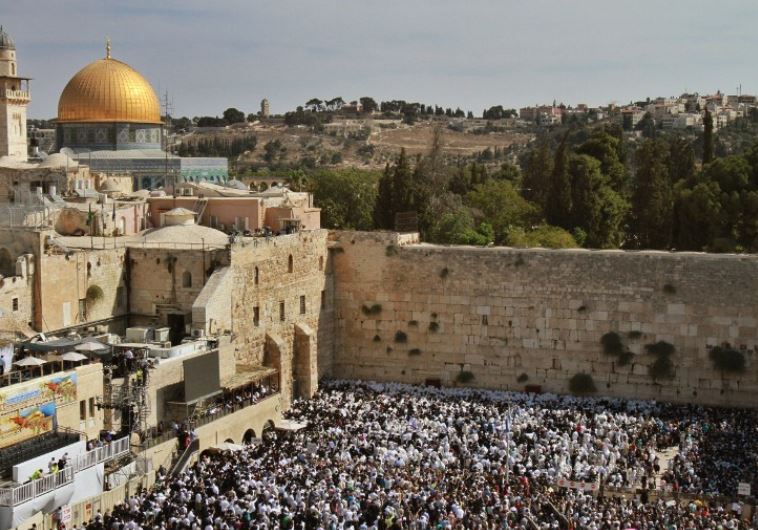Masorti, Reform leaders in Israel: We won't compromise further on Western Wall deal
Comments come in reaction to UTJ rejection of common entrance to Orthodox, pluralist prayer areas at the site.
 Jews gather to pray at the Western Wall during Succot(photo credit: AFP PHOTO)Updated:
Jews gather to pray at the Western Wall during Succot(photo credit: AFP PHOTO)Updated: